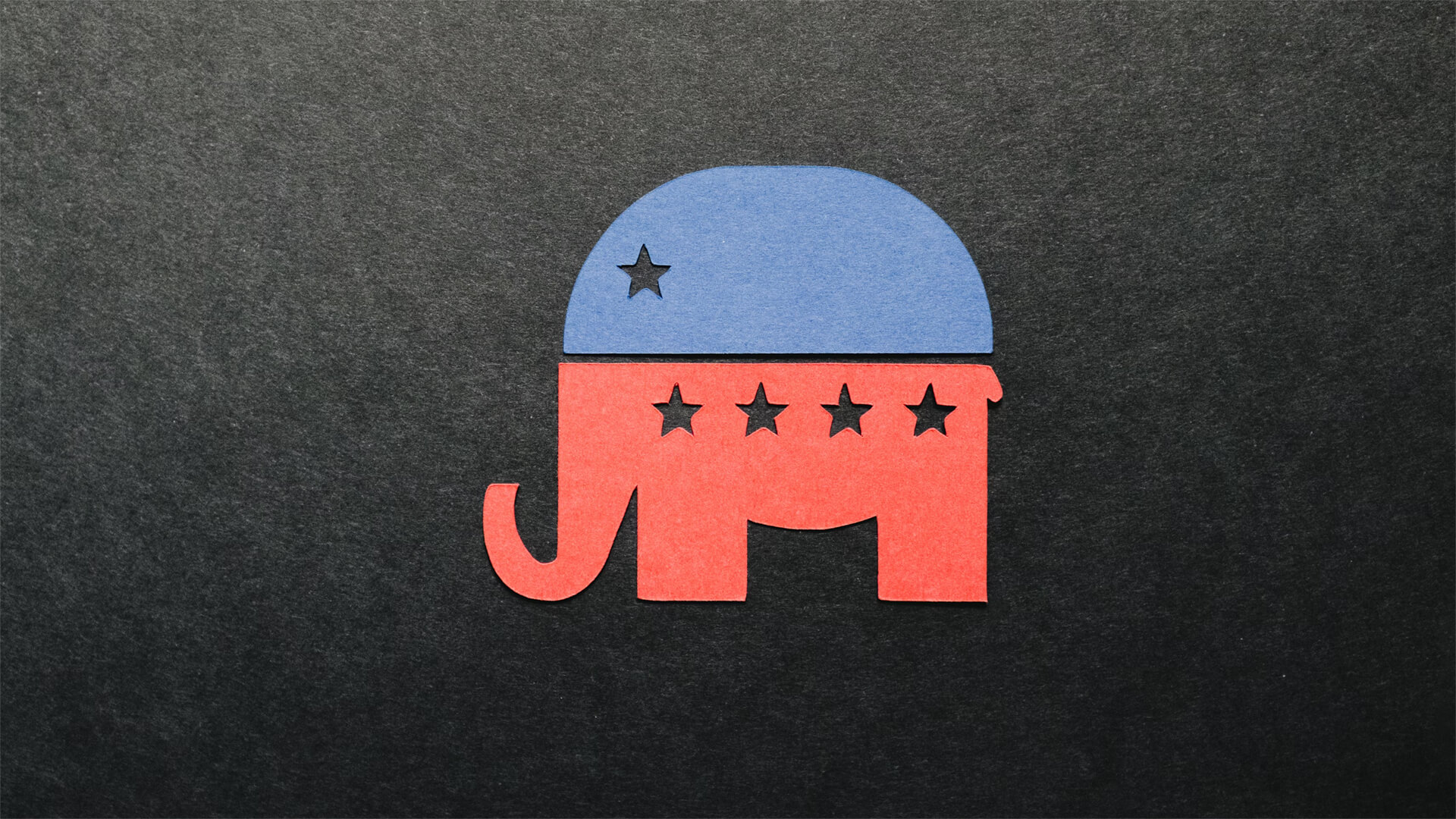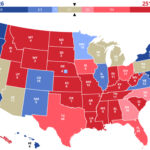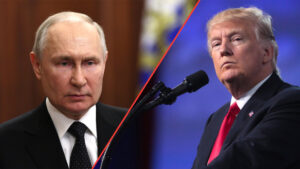The Republican Party is undergoing some evolutions at the moment, moving away from many of its traditional stances. This is part of a broader cycle in which American political parties shift and realign every few decades. On issues as diverse as abortion, international involvement, and the balance between business and labor, what it means to “be a Republican” is changing in ways that would have seemed silly just a few years ago.
With the future of the party uncertain, just about every faction and big name is trying to twist the future of the conservative movement in their own preferred directions. Which version will emerge when the dust settle? Only time will tell.
Here at Zeihan On Geopolitics we select a single charity to sponsor. We have two criteria:
First, we look across the world and use our skill sets to identify where the needs are most acute. Second, we look for an institution with preexisting networks for both materials gathering and aid distribution. That way we know every cent of our donation is not simply going directly to where help is needed most, but our donations serve as a force multiplier for a system already in existence. Then we give what we can.
Today, our chosen charity is a group called Medshare, which provides emergency medical services to communities in need, with a very heavy emphasis on locations facing acute crises. Medshare operates right in the thick of it. Until future notice, every cent we earn from every book we sell in every format through every retailer is going to Medshare’s Ukraine fund.
And then there’s you.
Our newsletters and videologues are not only free, they will always be free. We also will never share your contact information with anyone. All we ask is that if you find one of our releases in any way useful, that you make a donation to Medshare. Over one third of Ukraine’s pre-war population has either been forced from their homes, kidnapped and shipped to Russia, or is trying to survive in occupied lands. This is our way to help who we can. Please, join us.
Transcript
Hey everybody. Peter Zeihan here, coming to you from Colorado. It is the 17th of July, and it is the last day of the Republican National Convention, which I’ve been watching pretty closely because the Republican Party is in flux. For those of you who’ve been watching me for a while, you know that I’ve been saying for several years now that we’re in the late party structure for what is called the sixth party structure.
Basically, every generation or two, American politics goes into a period of flux where the factions that make up our parties move around. For the last few years, we’ve been in that process. It’s happening for both parties, but the Republicans are further along, so they’ve been the ones I’ve been following most closely. Donald Trump is obviously part of this process and has been accelerating it. Now with the convention, we’re starting to get a pretty good idea of what the next possible iteration of the Republicans will be.
Quick review. Most people associate the Republicans with a degree of social conservatism, international involvement, relatively hawkish positions on foreign affairs, especially military affairs, and a fairly pro-business outlook for businesses of all sizes. Every plank of that is now being challenged and rewritten by Team Trump as American society, demographics, trade, technology, and everything else evolve. It makes sense. Whether or not this new structure that’s evolving is the one that is going to stick remains to be seen, but we now have a pretty good idea of what the Trump Republican Party would be.
Three big changes. The first one is a bit of a surprise: a softer position on some social conservative issues like gay rights and abortion. Basically, the Trump Party is now saying that these are issues that should be decided by the states rather than at the national level. There are a lot of hardcore social conservatives who are pretty unhappy with that. But Donald Trump is betting that his cult of personality-like hold over the Republican Party is going to be sufficient, that no one can outflank him. Considering that he sailed to the nomination without even showing up at any of the primaries, that’s probably a safe bet, at least for this election cycle.
The second one, of course, is something that’s near and dear to my heart: a shift from international involvement to isolationism. The idea is that the problems over there are problems over there, and we should just stick to our own issues, but still arm ourselves to the teeth. We saw a lot of this in Trump’s first term, where he might talk tough on countries like Russia and China, but really on every major issue, whether it’s trade or security, he basically just let them do whatever they wanted. If it couldn’t be negotiated and stuck to in a single afternoon of talks, he really wasn’t interested. We saw that with Ukraine, and we’ve also seen it with trade policy with China, where we got this phase one trade deal, but then Trump couldn’t bother to enforce it. So the Chinese basically just walked all over the United States as regards trade. Things like that are definitely being codified into the Republican Party’s new platform.
The third change has to do with business versus labor. For the past several decades, really going back to the 1930s, the Republican Party has always sided with the business community over labor. But one of the highlight speakers of the convention this time was none other than a representative of the Teamsters Union, which is probably the most militant and throwback of America’s unions. He talked about the Chamber of Commerce basically being a welfare club for businesses. This was something that was on the stage of the Republican National Convention. For a while there, I was wondering if I was watching the right convention. These are issues that are usually trumpeted not just by the Democrats, but by the really leftist groups of Democrats, like, say, the Squad. Now it’s becoming core to the Republican Party platform.
In essence, we are entering a golden age for organized labor in the United States. The United States is in the process of doubling the size of its industrial plant. Most of those jobs are blue-collar, and so they’re very amenable to being organized into labor unions. The Teamsters, of course, are all for that. What the Trump Republican Party seems to be doing is basically ditching the entire business community and going whole hog towards organized labor. Among the new things in the Republican Party’s platform is the challenge to things like right-to-work laws in places like the American South and Texas that prevent or at least dissuade unions from forming in the first place. It’s now the official Republican Party platform that that’s a bad idea.
Now, will this new trifecta stick? It’s way too soon to tell. The old Reaganite and Lincoln Republicans are not dead yet. There were some hilarious moments on stage from my point of view. Ron DeSantis, who ran for president and is, of course, governor of Florida, was just angry, and it was pretty obvious. But I would say that the highlight for awkwardness goes to Nikki Haley, who came in second in the primaries against Donald Trump. She still lost, of course. She came on stage to endorse Trump, and not only was she booed when she showed up, but her endorsement speech was really awkward. It was kind of like a woman being asked to toast her ex-husband who had an affair with the secretary and was now marrying her. It was that level of awkwardness.
Anyway, Nikki Haley has already joined a think tank to reimagine what the next version of conservatism looks like in the United States now that the old Republican Party is truly dead. Mike Pence has formed a think tank to do the same thing. Now, I’m not suggesting that one of these three visions—Pence, Haley, or Trump—is the one that’s ultimately going to stick. I’m just highlighting that right now for this election cycle, we have a very different Republican platform and a very different Republican Party. Everything is still in flux. This is not the final form. We won’t get that probably until the next presidential cycle. And there’s a lot of folks who have irons in the fire to try to figure out what that is going to be.








